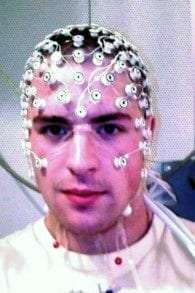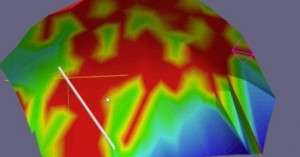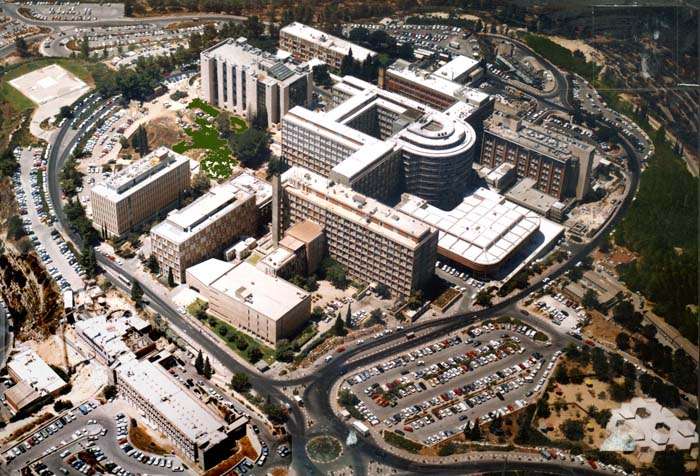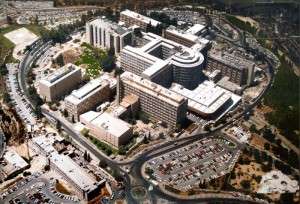Hadassah neuroscientists capture brain pattern of epileptic patient’s religious revelation

Following a complex partial seizure, an epileptic patient experienced a messianic revelation, “compatible with postictal psychosis (PIP)” according to Hadassah Medical Center Neuroscientist Dr. Shahar Arzy, who was able to record the patient’s brain activity in real time via EEG.
PIP is characterized by auditory and visual hallucinations, delusions, paranoia, affective change, and aggression. Brain monitoring with EEG (an electroencephalogram) enables neuroscientists to detect electrical activity in the brain.
The 46-year-old patient was being treated for temporal lobe epilepsy when he experienced the religious revelation in which he says he saw and conversed with God. As Dr. Arzy, Director of Hadassah’s Neuropsychiatry Laboratory and Neuropsychiatry Clinic and Epilepsy Center, explains in his article entitled God has sent me to you: Right temporal epilepsy, left prefrontal psychosis (which was just published in Epilepsy and Behavior), “Here, we had the rare opportunity to record a delusional religious conversion in real time in a patient with right temporal lobe epilepsy undergoing continuous video-EEG.”
While religious experiences have long been documented in patients with epilepsy, scientists had not yet pinpointed the exact underlying neural mechanisms at play. In this instance, Dr. Arzy and his scientific team witnessed increased activity in the low-gamma range during the patient’s religious experience as compared with activity during the patient’s habitual state. They were also able to identify the “brain generator” underlying this activity and conclude it was localized to the left prefrontal cortex.
The Times of Israel notes that this study “marks the first time” that the moment of a person’s messianic vision “has been captured on brain-monitoring equipment and may prove a vital step towards deeper understanding of the link to epilepsy.”
For more than 100 years, Hadassah (www.hadassah-med.com) has been a leader in medicine and nursing in Israel, laying the foundation and setting the standards for the country’s modern health care system. The majority of medical breakthroughs in Israel have taken place there. With more than 130 departments and clinics, Hadassah-Ein Kerem provides Israel’s most advanced diagnostic and therapeutic services for the local and national population and a significant number of international patients.
iMER (www.imer.biz) is the international patients office of the Hadassah University Hospital in Jerusalem. iMER, with offices in Cyprus, Austria, Germany, Israel, Russia, Ukraine, Azerbaijan and Georgia, in cooperation with Hadassah, offers patients assessment services, the preparation of a medical plan and referral to the appropriate Hadassah units.







